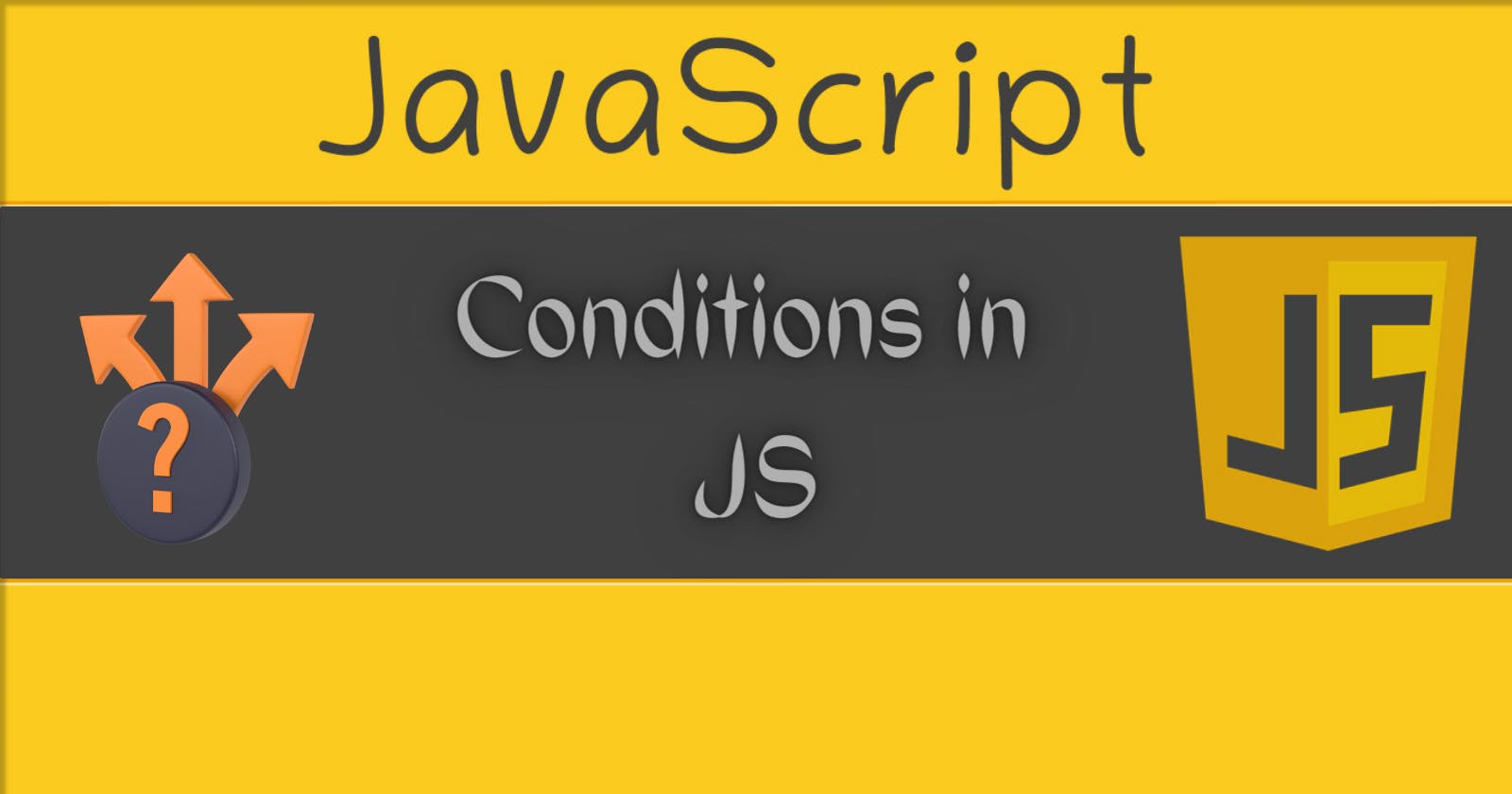JavaScript has several types of conditions that can be used to control the flow of a program. These conditions are used to check if a certain statement is true or false , and perform different actions based on the result.
1. if-else statement:
This is the most basic type of condition in JavaScript. The syntax for an if-else statement is as follows:
if (condition) {
// code to be executed if condition is true
} else {
// code to be executed if condition is false
}
For example,
let num1 = 10;
let num2 = 5;
if (num1 > num2) {
console.log("num1 is greater than num2");
} else {
console.log("num2 is greater than num1");
}
// Output: num1 is greater than num2
2. if-else if-else statement:
This type of condition is used when there are multiple conditions to check. The syntax for an if-else if-else statement is as follows:
if (condition1) {
// code to be executed if condition1 is true
} else if (condition2) {
// code to be executed if condition1 is false and condition2 is true
} else {
// code to be executed if both condition1 and condition2 are false
}
For example,
let num1 = 10;
let num2 = 5;
if (num1 > num2) {
console.log("num1 is greater than num2");
} else if (num1 < num2) {
console.log("num1 is less than num2");
} else {
console.log("num1 is equal to num2");
}
// Output: num1 is greater than num2
3. Switch statement:
This type of condition is used when there are multiple conditions to check and multiple actions to be performed based on the result. The syntax for a switch statement is as follows:
switch (expression) {
case value1:
// code to be executed if expression = value1
break;
case value2:
// code to be executed if expression = value2
break;
default:
// code to be executed if expression does not match any case
}
For example,
let day = "Monday";
switch (day) {
case "Monday":
console.log("Today is Monday");
break;
case "Tuesday":
console.log("Today is Tuesday");
break;
default:
console.log("Today is not Monday or Tuesday");
}
// Output: Today is Monday
In conclusion, conditions play a vital role in controlling the flow of a program in JavaScript. Understanding the different types of conditions and how to use them is essential for writing efficient and effective code.
